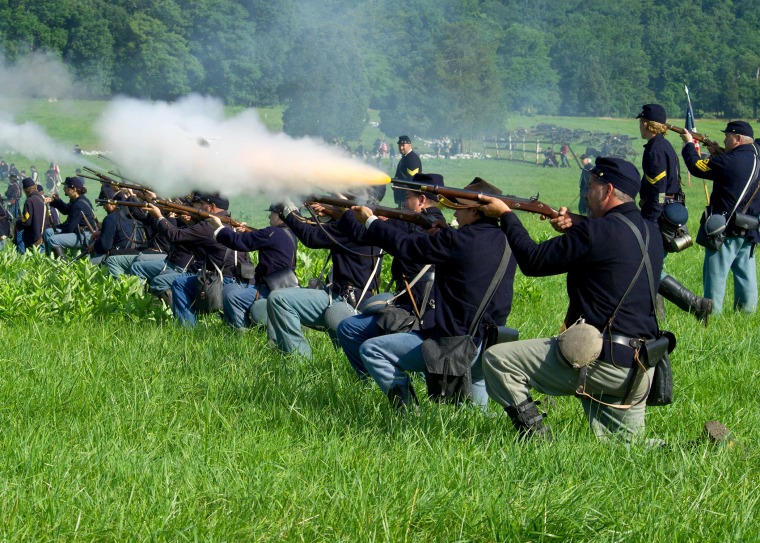Washington’s partisan gridlock may have a simple explanation: its founding historical roots.
Author Colin Woodard explains in his book, “American Nations” that the United States isn’t one united nation, but actually eleven separate nations with their own historically-rooted values and perspectives.
“I argue there’s not really one American culture, but several Americas,” said Woodard on Friday’s The Daily Rundown. “When people have moved in, their children and grandchildren and great-grandchildren aren’t just assimilating to an American culture, but to one of these regional cultures so the overall ethos and characteristics tend to persist over time.”
He added that people’s preference to move where they feel comfortable has “emphasiz[ed] rather than reduc[ed] differences between these cultural spaces.”
His theory has recently been used to explain one of the most heated topics on Capitol Hill -- the debate over gun debate.
The Deep South, Greater Appalachia and The Far West have the highest rates of deadly assault, but their legislators still resist stricter gun reforms. In April, 12 of the 14 Senators from the seven Deep South states voted against a background checks bill, which has since stunted gun reform progress.
Woodard theorizes that this regional resistance among policymakers and populace depicts the historically rooted value on individual liberties and anti-interventionism.
In the Deep South, the fight over slavery created an ongoing battle against federal powers and a deep strain of anti-federalism which lingers today. Likewise, Appalachia was founded by settlers from war-ravaged areas like Northern Ireland, Northern England and the Scottish Lowlands, where people grew familiar to violence as they struggled in a bloody fight for independence against the British. And in the Far West, its settlers were tied to Eastern powers that fought against outside Western intervention.
The Northern regions like Yankeedom and The Midlands, however, experience less gun violence because of their peaceful and religious roots, according to Woodard.
Yankeedom experiences less than two deaths per 100,000 people from gun violence each year and in its six states, 11 of the 12 senators voted in favor of expanded background checks in April.
Woodard theorizes that Yankeedom’s attitude stems from its radical Calvinist roots, which emphasized social engineering rather than violence as the way to improve society and welcomed government regulation. Similarly, the Midlands’ Quaker roots created a society where people organized around the middle class, creating support for social welfare programs.
However, the challenge with having eleven nations is governing, which Washington has exemplified this year.
With D.C.’s dysfunction over the gun debate, the budget and healthcare, Woodard predicts that major parties are going to have to sway broaden their messages if they want to move government forward.
“What’s happened in our history and presumably it would have to happen moving forward is that one or the other of the current political blocks…would have to figure out how to modify their message so as to build a larger regional coalition,” he said. “Or I think we’re going to remain for a long time in this state where it keeps switching from one coalition to the other and we’ll remain completely deadlocked with neither group able to overcome the resistance of the other in Washington.”
